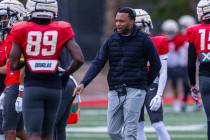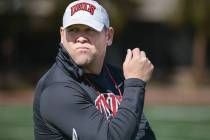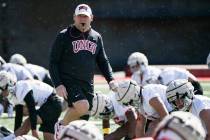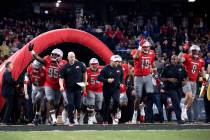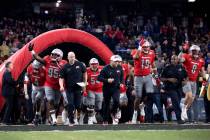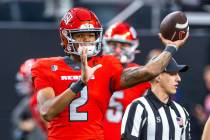UNLV profits on Utes
Utah's appearance -- and victory -- in the Sugar Bowl did more than simply increase the Mountain West Conference's credibility. It might have saved some jobs at UNLV.
The approximately $500,000 that UNLV will receive as a result of the Utes' participation in a Bowl Championship Series game probably will help the athletic department break even and possibly prevent layoffs, according to athletic director Mike Hamrick, who said 13 or 14 vacancies have been frozen as a result of the troubled economy.
The athletic department, which operates with a $26.9 million budget, has about $1 million in reserve. Hamrick said the BCS money should arrive in June.
"It will go into the athletic department reserve, and we'll use it for a rainy day, which is right now," Hamrick said.
"It's very welcome for all of our institutions" in the Mountain West, Hamrick added.
Jim Andrus, Mountain West associate commissioner for business and finance, said each school receives at least $600,000 for the conference's five bowl appearances this season. Four other MWC teams played in non-BCS games.
The schools that played in bowl games are guaranteed at least to break even before any money is distributed.
The Utes' appearance in the Sugar Bowl -- where they stunned Alabama 31-17, lifting them to No. 2 in the final Associated Press poll -- means each Mountain West school will receive about $500,000.
All non-BCS schools receive money from the system each year even if no team from their conference qualifies for one of the major bowls. The dollar figure increases if a team from any non-BCS conference makes the BCS, with the representing league getting the biggest share of the payout.
For instance, the Western Athletic Conference sent teams to BCS games the previous two seasons, and that meant about an additional $200,000 for each Mountain West school, while the WAC received the largest financial benefit.
In 2004, when Utah became the first non-BCS team to play in a BCS bowl, Mountain West schools each received an additional $1 million because the conference didn't have to share revenue with other leagues. The BCS has since changed its revenue-distribution policy.
Contact reporter Mark Anderson at manderson@reviewjournal.com or 702-387-2914.










